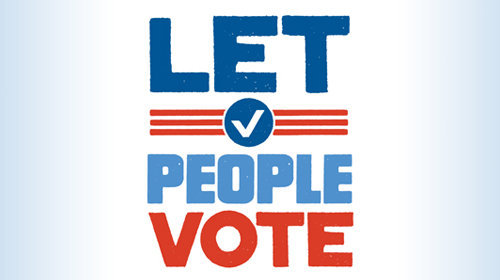
Following a wave of voter suppression laws over the last few years, Texas passed a restrictive voter identification law, which unfairly burdened communities of color all across the state. The new law was rejected as discriminatory under the federal Voting Rights Act of 1965.
In Arizona, Herta Weber, a U.S. Army and Navy veteran had her voter registration denied because of new burdensome state requirements for documentary proof of citizenship, despite the fact that she could easily register under the requirements of the federal National Voter Registration Act (NVRA) (the federal "motor voter" law).
These examples illustrate the critical importance of our nation's federal voting rights laws. Over the last fifty years, Congress has used its powers to ensure voting rights nationwide for all Americans in the face of unnecessary and discriminatory state restrictions on access to the ballot. Without the existence of these and other federal voting rights laws, the voters of Texas, Ms. Weber, and millions of other US citizens could be denied their fundamental right to vote.
Congress' critical role in protecting all of us is now at issue. In the past few weeks, the Supreme Court has heard two cases that examine the role of Congress in ensuring voting rights: Shelby County v. Holder and Arizona v. Inter Tribal Council of Arizona (ITCA). The ACLU represents parties in both of these cases defending the federal laws and was integral in working with Congress on both the reauthorization of the Voting Rights Act and passage of the NVRA.
Shelby County v. Holder
Congress passed the Voting Rights Act to enforce rights guaranteed to minority voters nearly a century before by the Fourteenth and Fifteenth Amendments. Although these amendments prohibited racial discrimination in voting, communities of color continue to face disfranchisement from discriminatory state voting laws.
In Shelby, the Court will decide whether Congress had the authority to reauthorize Section 5 of the Voting Rights Act in 2006. This key provision requires federal pre-approval of voting changes in "covered" jurisdictions around the country, which have been determined to have both a history of and ongoing discriminatory voting practices.
During the reauthorization, Congress created an extremely extensive record in order to determine Section 5 was still necessary in the covered states. Any decision now striking it down would not only undermine the critical protections of the Voting Rights Act itself, it would call into question Congress' constitutional power to pass laws it deems necessary to prevent discrimination generally and to ensure a federal role in remedying voting discrimination in particular.
Arizona v. Inter Tribal Council of Arizona
In addition to the reauthorization of the Voting Rights Act, Congress has also used its power to reduce complicated and unnecessary state restrictions in voter registration with the National Voter Registration Act (NVRA). Congress passed the NVRA in 1993 to make voter registration more accessible to all voters, and did so under its very broad powers to regulate the "time, place and manner" of conducting federal elections set out in the Elections Clause of the Constitution. The goal was to ensure that all US citizens across the states, like Ms. Weber, have a simple and easy way to register to vote.
The Supreme Court will also be examining Congress' role to increase access to voter registration in Arizona v. Inter Tribal Council of Arizona. The issue in this case is whether a law adopted by Arizona in 2004 violates the NVRA by requiring new voters to produce documentary proof of citizenship, not required by the federal government, in order to register to vote. Allowing states to pile on additional requirements to prove citizenship, beyond the federal requirements, would undermine Congress' original intent to create a simple and uniform application form. In fact, the legislative history of the NVRA indicates that Congress did not accept language that would have allowed states to add documentary proof of citizenship requirements onto the federal application.
Congress' Critical Role
Congress has used its power to regulate, protect, and expand voting rights many times before, and the Supreme Court's settled case law shows that the NVRA's requirements and reauthorization of the Voting Rights Act are clearly within Congress' authority.
The role of the federal government in protecting our voting rights cannot be overstated. Without it, we face a patchwork of differing state laws that citizens must often navigate to vote. It is Congress that ensures all people have access to our most fundamental right by developing remedies for discrimination and by creating uniform federal laws that allow all citizens to participate in federal elections.
Sadly, as the wave of voter suppression laws leading up to the 2012 elections showed us, it is clear the need for these congressional protections are not a thing of the past. The need for them continues every day.
Learn more about voter rights and other civil liberty issues: Sign up for breaking news alerts, follow us on Twitter, and like us on Facebook.


